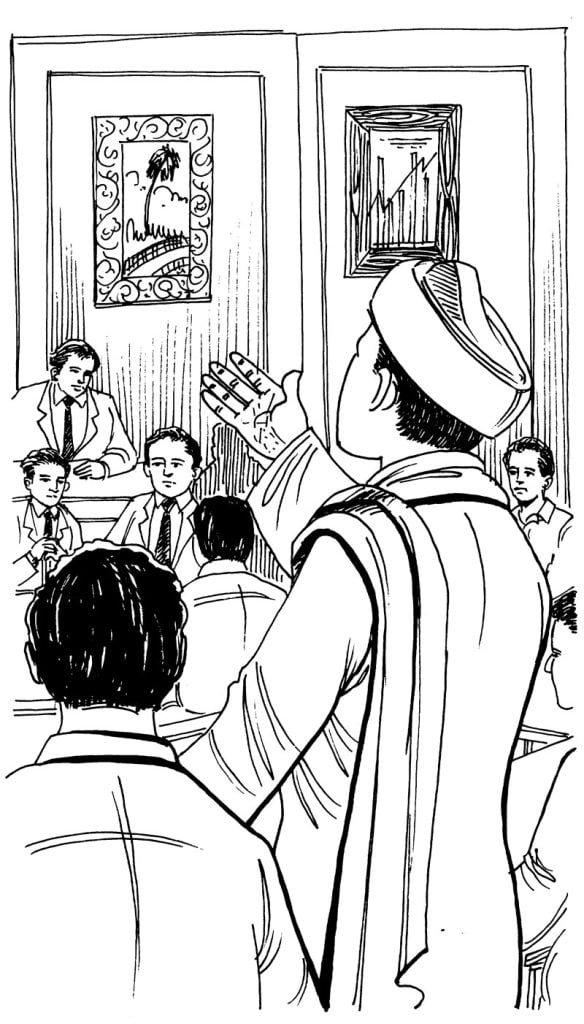From the very inception of the Congress party Gokhale remained connected to it. He had been an important member of the party who shaped the party through its initial period when it was crystallizing its agenda.
In 1904 Congress Session Gokhale was chosen as a secretary of the party. He had a very honoured place in the party and the British government of India held him in high regard. Over the period the Congress party saw two groups emerging in its ranks.
The division became more sharp when the British announced division of Bengal on communal lines with a aim to weaken the revolutionary forces that had become the scourge of the administration.
The division of Bengal angered the country and people retaliated with countrywide strikes, demonstrations and boycott calls.
The two groups within Congress were ‘Hard Liners’ and ‘Soft Liners’. The hard liners wanted Congress to pursue aggressive policies against the British and throw a direct challenge to it. The soft liners were against directly challenging the British. They wanted the party to deal with the British through soft approach without confrontation.
Gokhale was a softline leader. The party expected Gokhale to persuade the British to change its Bengal Division decision as he was on good terms with the rulers. It could bring peace between the two groups.
In 1904, Sir William Waderman introduced a resolution that India must sent some representatives to Britain’s general election. It was accepted.
The Congress chose Gopal Krishna Gokhale and Lala Lajpatrai to represent the country. They went to England on 16th September, 1905.
Gokhale spoke in the party public meetings of Labour Party in a matter of 50 days. He worked for 18 hours each day. As a result he suffered dehydration of throat. He had to be operated upon by the doctors on the ship itself he was returning by.
His speeches made good impression on the people of England. Now the case of the Indian people was better understood by Britons.
Gokhale retuned to India on 5th December 1905. He may have earned laurels in England through his erudite speeches but Bombay was cool to him.
Bombay Presidency Association did not accord him any reception or organised meeting to honour him.
Ferozeshah Mehta did not go to the port to receive him even. He was not happy with Gokhale. The bone of contention was ‘The Servants of India Society’ founded by Gokhale.
Bal Gangadhar Tilak did organise a meeting at Pune to honour Gokhale. Tilak generously praised the works and speeches of Gokhale delivered in England. He also mentioned the social services rendered by Gokhale to the country. For some the coming together of Tilak and Gokhale was an enigma. They were taken to be antagonists.
Infact the division of Bengal had brought them together. Tilak duly honoured him by taking him to the apex of the Congress party, the post of the Congress President.
Gokhale expressed his reluctance citing his immature age and the presence of the deserving seniors. But the ‘Congress Welcome Committee’ dismissed his reservation and elected him to the post of the President. No one had any doubt about Gokhale’s qualification to occupy the apex seat of the party.
The division of Bengal was a problematic issue before Gokhale.
Technically the division of the state of Bengal made sense. It was a very large state which caused administrative dilution and posed logistics problems. The division could make it better administered area.
But here Lord Curzon was playing his dirty game. The division was being used to drive a wedge between Hindus and Muslims. On this score the move looked very sinister.

So, Bengal exploded in anger. 500 protest meetings were held and a petition signed by 60,000 Bengalis against the division was sent to the British Parliament.
The Governor of Bengal, Lord Kitchner differed from the Viceroy Lord Curzon on the division issue. He even resigned from his post.
But the Bengal Division Act had already been passed by Imperial Legislative Council at Simla in August, 1905. It was to be implemented in October.
That day was observed as ‘Black Day’ in Bengal.
Benaras session
In 1905 Benaras Session of Congress was held under the presidentship of Gopal Krishna Gokhale Ferozeshah Mehta and his associates boycotted the session.
The Congressmen wanted Gokhale’s guidance on Bengal issue. In his presidential address Gokhale welcomed the arrival of Prince of Wales and the princess in India on a visit. He also greeted the new Viceroy, Lord Minto. He severely castigated Lord Curzon and compare him to Aurangzeb.
He admitted that as an individual Curzon was a great man but he lacked farsightedness in India’s case and the compassionate feelings towards Indians.
Gokhale welcomed his departure.
Benaras Session of Congress was only partially successful due to non-cooperation by various groups and individuals.
